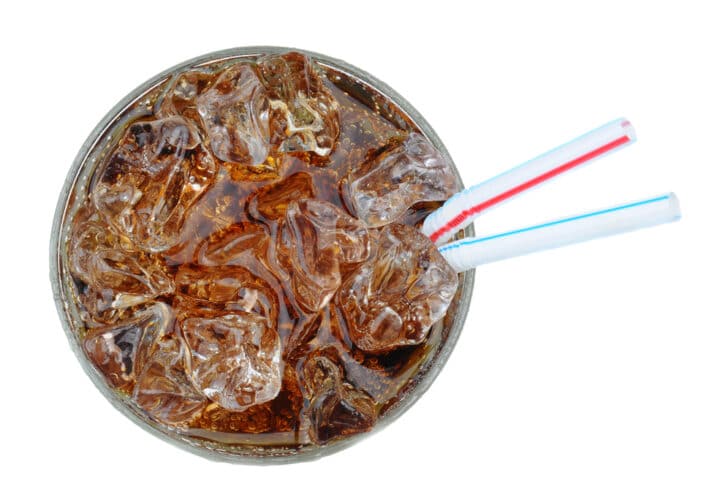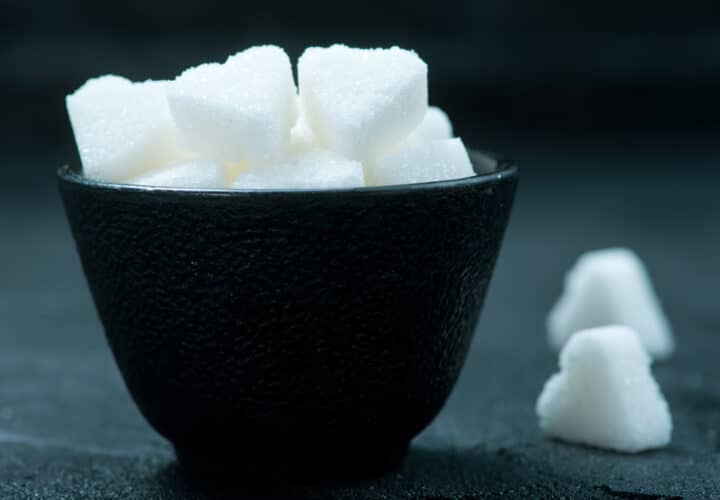Research shows that consuming foods and drinks that are rich in sugar, like soda, is linked with increased risk of Alzheimer’s.
When your day hits a lull around 3 p.m., it’s easy to reach into the fridge for an ice-cold soda or head to the coffee counter for a refreshing treat to revive your sluggish body and mind. But could your afternoon pick-me-up actually hurt your brain? Scientists at Columbia University have found that a soda habit is associated with an increased risk of developing Alzheimer’s disease.
The researchers tracked the diet of 2,226 adults in New York City over the course of seven years. Of those, 429—about 19 percent—developed Alzheimer’s disease. When the scientists examined the diets of participants, they found that those with the highest amounts of added sugar consumption had a much higher risk of Alzheimer’s than those who consumed the lowest amounts of sugar of the group. Those who consumed 30.3 grams of added sugar were 33 percent more likely to develop Alzheimer’s than those who consumed around 3.8 grams per day.
To put those numbers into perspective, one 12 fl. oz. can of Coke contains 39 grams of sugar. The same size RedBull contains 37 grams. Meanwhile, 3.8 grams of sugar is about the equivalent of one tablespoon of ketchup.
Researchers took all foods and drink into account, but soda was found to be most associated with an increased risk of Alzheimer’s. The risk level was still 33 percent after the researchers adjusted the numbers to take smoking, other diagnosed diseases and body mass index into account.
Other research shows that switching to diet drinks doesn’t make much of a difference, either. A Boston University study found that those who drank one diet soda per day were almost three times as likely to develop dementia or have a stroke when compared to those who did not.
Sugar has come up a lot in recent Alzheimer’s research—so much so that some doctors have dubbed dementia ‘Type 3 diabetes‘ because of the similarities between what happens in the brain in the two diseases. In fact, scientists are studying how diabetes drugs might be able to treat Alzheimer’s patients, too. Diabetes itself is a risk factor for Alzheimer’s, doubling the risk.
“Too much sugar is linked to Type 2 diabetes and our previous research has identified Type 2 diabetes as a risk factor for dementia,” said Doug Brown, Chief Policy and Research Officer at Alzheimer’s Society, which was not involved in the research. “This study backs up this evidence, suggesting that excess sugar may increase our risk of Alzheimer’s disease, and all types of sugar – from fruit juice to lemonade – have the same impact.”
Of course, there are caveats to research like this. This study doesn’t prove that sugar actually damages the brain or causes memory loss—it just shows that there is an association between higher sugar consumption and Alzheimer’s disease. There could be other factors in the lives of those more likely to consume a lot of sugar that contribute to the overall risk.
The good news? There seems to be an easy way to immediately reduce your risk of Alzheimer’s.
“By cutting down on the fizzy drinks, sweets and cakes and eating a varied and balanced diet we will be able to reduce our risk of developing dementia in later life,” said Brown.




How can I get a copy of the 7 stages of altzeimers ? My wife was diagnosed with the disease 18 months ago.
Peter B –
Please click on the link below!
https://www.beingpatient.com/seven-stages-of-alzheimers-interactive-guide/